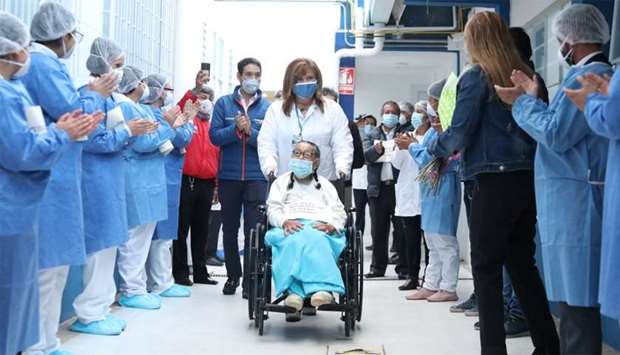Spanish children were allowed outside on Sunday for the first time in six weeks as countries eased lockdown measures in a bid to slowly reopen economies gutted by the coronavirus pandemic that has infected nearly three million people worldwide.
Governments from France to Italy and the United States are starting to peel back severe restrictions that have kept more than half of humanity indoors for weeks on end.
Coronavirus cases around the world topped 2.9mn on Sunday and deaths hit nearly 203,000 people, well over half of them in Europe.
The daily toll in Western countries appeared to be levelling off and even falling in hard-hit countries, with numbers out of Italy, Spain and France stabilising in recent days.
Governments are plotting a gradual reversal of lockdown measures to avoid a sudden rush back to normal life -- and the risk of a second wave of infections -- amid warnings from the World Health Organisation that recovered people might not be immune to reinfection.
Spanish families embraced new rules allowing children outside for the first time since mid-March, with kids hopping on bicycles and scooters on the streets of Madrid -- some wearing small masks and gloves.
The new rules were rolled out as the death toll in the hard-hit country dropped to 288 people on Sunday, the lowest since March 30.
With more than 23,000 fatalities, Spain has the third highest death toll in the world after Italy's 26,000 and more than 53,000 in the United States.
Other hard-hit countries across Europe are also starting to look toward a slow crawl back to normality.
Italy said schools would reopen in September, while many business could resume work next week, and France was expected to unveil details of its de-confinement plan on Tuesday.
Belgium said schools and businesses will reopen from mid-May, while shops in Germany started to reopen earlier this week.
And in Britain, where more than 20,000 have died, Prime Minister Boris Johnson was planning a return to work today after being treated in hospital for the virus, including three days in intensive car.
But his government resisted calls to ease nationwide restrictions, even as it reported its lowest daily death toll since March 31 on Sunday with 413 new fatalities.
Rejecting the advice of top disease experts, the US state of Georgia allowed thousands of businesses to resume operations, from hairdressers to bowling alleys.
US President Donald Trump has repeatedly said he wants to resume business in the world's biggest economy, even as medical advisors have cautioned against easing lockdown too soon or too fast.
While new reported cases appear to have plateaued at about 80,000 a day, the world remains in wait as companies and governments race to develop treatments and, eventually, a vaccine for the virus.
Some governments are studying measures such as "immunity passports" as one way to get people back to work after weeks of shutdowns that have roiled the global economy.
"If I've already had corona then I'm not infectious," said Berlin resident Lothar Kopp, hoping to test positive for antibodies as it could allow him to visit his elderly mother.
But the WHO warned that people who survive infection cannot be certain they will not be hit again by the respiratory disease, which first emerged in China late last year.

